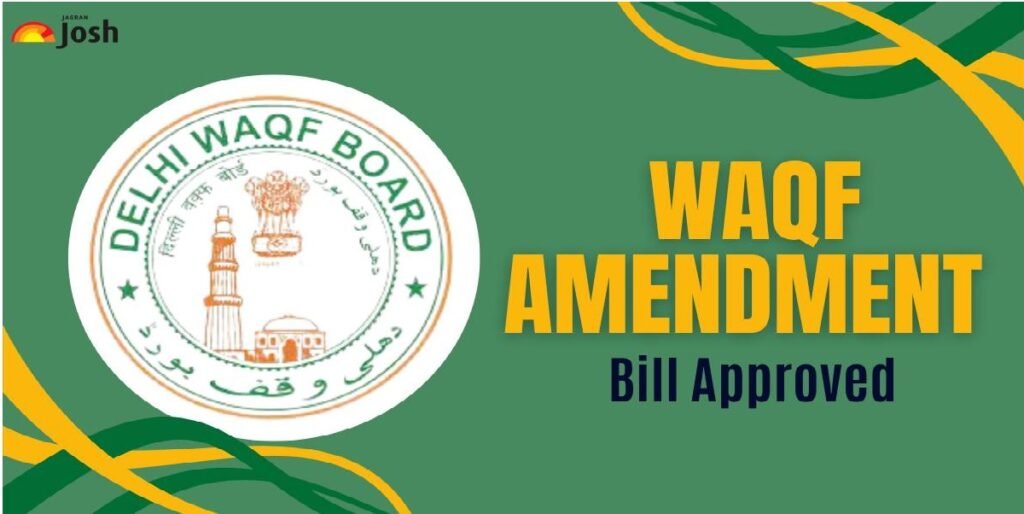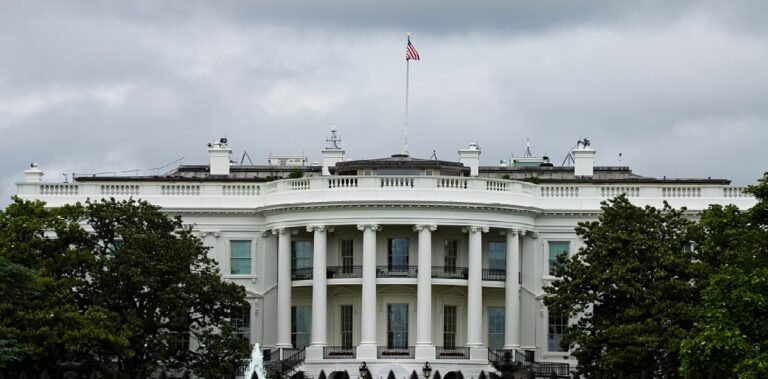
"WQPF Bill 2025: A Powerful Step Towards a Brighter Future!"
The WQPF Bill 2025 is a landmark legislative initiative aimed at driving sustainable growth, fostering innovation, and ensuring long-term prosperity. This bill is designed to address critical issues in economic policy, environmental sustainability, and technological advancements. With a clear focus on creating a resilient and forward-thinking society, the WQPF Bill 2025 is positioned to be a transformative step towards a brighter future.
Understanding the WQPF Bill 2025

The WQPF Bill 2025—short for the Workforce Quality and Prosperity Framework—is a comprehensive legislative measure that introduces new regulations, funding allocations, and strategic reforms. The bill seeks to strengthen workforce development, promote clean energy initiatives, enhance educational opportunities, and streamline economic policies to ensure stability and growth.
This initiative stems from the increasing demand for a skilled workforce, technological advancements, and the urgent need to address environmental concerns. By integrating sustainable practices with economic expansion, the WQPF Bill 2025 is set to redefine how governments, businesses, and communities interact.
Key Provisions of the WQPF Bill 2025
1. Workforce Development and Employment Growth
One of the primary focuses of the bill is workforce enhancement. The legislation includes provisions for:
- Vocational Training and Skill Development: Allocating funds to improve job training programs, ensuring individuals are equipped with modern skills.
- Incentives for Businesses: Companies that invest in employee development will receive tax benefits and government support.
- Apprenticeship Programs: Encouraging businesses to participate in mentorship and apprenticeship programs to help young professionals gain experience.
- Workforce Equality and Inclusion: Implementing policies that promote workplace diversity and provide equal opportunities.
2. Technological Advancements and Innovation
The bill also fosters innovation by supporting technological growth and digital transformation. Key aspects include:
- Grants for Tech Startups: Encouraging entrepreneurs to develop innovative solutions by providing financial backing.
- Cybersecurity Enhancements: Strengthening digital infrastructure to protect against cyber threats.
- Artificial Intelligence (AI) and Automation Integration: Promoting AI-driven solutions for efficiency and productivity.
- Research and Development (R&D) Tax Credits: Encouraging companies to invest in new technologies by offering incentives.
3. Environmental Sustainability and Green Initiatives
The WQPF Bill 2025 aims to address environmental concerns by introducing sustainability-focused policies. These include:
- Renewable Energy Investments: Increased funding for solar, wind, and hydroelectric power projects.
- Carbon Emission Reductions: Imposing stricter regulations on industrial carbon footprints.
- Green Infrastructure Projects: Developing sustainable urban planning and public transport systems.
- Recycling and Waste Management: Enhancing nationwide waste reduction and recycling programs.
4. Economic Stability and Financial Reforms
The bill also outlines financial measures to ensure economic growth and resilience. These include:
- Tax Reforms: Adjustments to corporate and individual tax structures to promote economic fairness.
- Small Business Support: Grants and low-interest loans to empower small businesses.
- Housing and Urban Development: Investing in affordable housing solutions to address the growing population.
- Public-Private Partnerships (PPPs): Encouraging collaboration between the government and private sector for infrastructure development.
Expected Impact of the WQPF Bill 2025

1. Job Creation and Economic Growth
With the emphasis on workforce development and employment growth, the bill is expected to create millions of new job opportunities. By equipping workers with modern skills, the economy will experience increased productivity and higher wages.
2. Advancements in Technology
By investing in technology and innovation, the bill ensures that the country remains competitive in the global digital landscape. The push for AI, cybersecurity, and automation will drive efficiency and create new industries.
3. Environmental Protection and Sustainability
The sustainability initiatives within the bill will significantly reduce carbon footprints, leading to cleaner air, water, and healthier ecosystems. Renewable energy investments will also reduce dependence on fossil fuels.
4. Strengthening Small Businesses and Local Economies
Through financial reforms and small business support, local economies will flourish. With better access to funding and resources, small businesses will expand and create new employment opportunities.
Challenges and Criticisms
1. Budget and Funding Concerns
One of the major criticisms of the WQPF Bill 2025 is the substantial funding required to implement these initiatives. Critics argue that excessive government spending may lead to higher taxes or national debt.
2. Regulatory Compliance Issues
Businesses may face challenges adapting to new regulations. Some argue that stricter environmental policies could burden industries, leading to potential layoffs or production delays.
3. Technology-Driven Job Displacement
While automation and AI will enhance productivity, they may also replace traditional jobs. Addressing this issue will require strong reskilling programs to transition workers into new roles.
Future Prospects and Long-Term Vision
The WQPF Bill 2025 is not just a short-term solution but a strategic roadmap for the coming decades. Its success will depend on efficient implementation, collaboration among stakeholders, and continuous evaluation. The government plans to establish monitoring committees to assess progress and make necessary adjustments.
Potential future amendments may include:
- Further Expansion of AI and Robotics: Encouraging more industries to adopt AI-driven technologies while ensuring job security.
- Additional Sustainability Policies: Strengthening green energy initiatives and increasing incentives for sustainable businesses.
- International Collaboration: Partnering with other nations to share technological advancements and environmental solutions.
WQPF Bill 2025: Transforming the Workforce for a Better Future
The WQPF Bill 2025 is set to revolutionize the workforce by equipping individuals with modern skills and fostering job growth. Through vocational training, apprenticeships, and business incentives, the bill aims to bridge the gap between education and employment. By encouraging innovation and workforce inclusivity, it ensures equal opportunities for all. Companies investing in employee development will benefit from government support, leading to a stronger economy. With a focus on long-term sustainability, this bill paves the way for a highly skilled and future-ready workforce.
WQPF Bill 2025: Advancing Technology and Innovation in Every Industry

The WQPF Bill 2025 promotes technological advancements by providing funding for research, development, and digital transformation. It encourages businesses to adopt artificial intelligence, automation, and cybersecurity measures to enhance productivity. Startups and tech-driven enterprises will benefit from grants and tax incentives to drive innovation. By integrating cutting-edge solutions across industries, the bill ensures global competitiveness and economic growth. This initiative paves the way for a smarter, more efficient, and technology-driven future.
WQPF Bill 2025: A Roadmap to Economic Growth and Stability
The WQPF Bill 2025 lays the foundation for sustainable economic growth by fostering job creation, supporting small businesses, and implementing financial reforms. Through strategic investments in infrastructure, education, and technology, the bill strengthens economic resilience. Tax incentives and funding opportunities empower entrepreneurs and industries to thrive in a competitive market. By promoting fair policies and public-private partnerships, it ensures long-term financial stability. This initiative is a crucial step toward building a prosperous and balanced economy for future generations.
WQPF Bill 2025: Pioneering Environmental Sustainability and Green Policies
The WQPF Bill 2025 takes a bold step toward environmental sustainability by investing in renewable energy and eco-friendly infrastructure. It enforces stricter carbon emission regulations and promotes green initiatives to combat climate change. Businesses adopting sustainable practices will receive incentives to encourage responsible environmental stewardship. Waste management and recycling programs are strengthened to reduce pollution and protect natural resources. This bill paves the way for a cleaner, greener, and more sustainable future for all.
WQPF Bill 2025: Addressing Challenges and Ensuring Long-Term Success
The WQPF Bill 2025 acknowledges potential challenges such as funding concerns, regulatory compliance, and workforce adaptation to new technologies. To ensure long-term success, the bill includes provisions for continuous monitoring and policy adjustments. It promotes reskilling programs to help workers transition into emerging industries and mitigate job displacement. Collaboration between government, businesses, and communities is key to overcoming obstacles and maximizing benefits. By addressing these challenges proactively, the bill lays the groundwork for a stable and prosperous future.
Conclusion
The WQPF Bill 2025 represents a bold and ambitious step toward economic, technological, and environmental progress. While challenges exist, its potential to transform industries, create jobs, and protect the environment makes it a crucial piece of legislation. By fostering collaboration between government agencies, businesses, and communities, the bill paves the way for a brighter and more prosperous future.
As the world moves towards a digital and sustainable era, the WQPF Bill 2025 serves as a cornerstone for progress. With the right policies, funding, and execution, this legislation has the potential to create lasting positive change for generations to come.
Frequently Asked Questions (FAQ)
1. What is the primary objective of the WQPF Bill 2025?
The main goal of the bill is to promote workforce development, technological advancements, economic stability, and environmental sustainability through comprehensive policy reforms and funding initiatives.
2. How will this bill affect small businesses?
Small businesses will benefit from grants, low-interest loans, and tax incentives designed to promote growth and innovation while ensuring financial stability.
3. What measures does the bill include for environmental sustainability?
The bill includes investments in renewable energy, stricter carbon emission regulations, green infrastructure projects, and improved recycling and waste management programs.
4. Will the bill lead to increased taxes?
While the bill requires significant funding, policymakers have designed tax reforms to balance economic growth and avoid excessive financial burdens on taxpayers.
5. How will this bill impact job creation?
By funding vocational training, providing business incentives, and supporting technological innovation, the bill aims to create millions of new job opportunities across various industries.
6. What are the long-term goals of the WQPF Bill 2025?
The long-term vision includes sustained economic growth, a technologically advanced workforce, stronger environmental policies, and enhanced global competitiveness.






